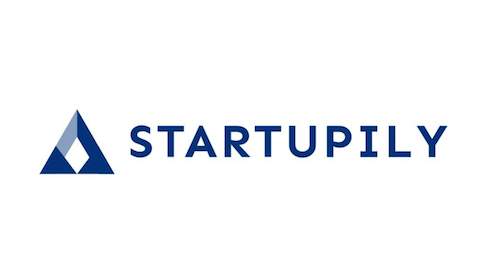Launching an online startup is a difficult task, especially at the planning stage. Entrepreneurs face a number of questions: where to start, where to look for developers, how much money do they need? And, of course, the most important thing: how not to burn out and make the startup a success?
Elena Nazarova, co-founder of ItFox, will answer all these questions.
What is MVP? Why do Big Companies Start Development With It?
A typical mistake made by entrepreneurs is the desire to make a “perfect” product with a large set of functions.
For example, instead of focusing on developing the main functionality, say, making an appointment with a doctor (if we are talking about a mobile application for a clinic), the startup starts paying attention to ratings, reviews, blogs, and so on.
Because of this, he, firstly, increases the budget, and, secondly, instead of a user-friendly and understandable product, creates a “giant” that has many functions and only confuses customers.
When you develop a lot of functionality, it’s difficult to thoroughly think through all the scenarios of user behavior. An entrepreneur thinks that everything in his app is clear and logical. In reality (going back to our example of the clinic app), the most important action is “making an appointment”. It becomes possible after you click on unnecessary buttons and navigate through various sections.
So the answer to the question “How do I start developing an online startup?” – It’s simple: it’s worth starting with the development of one main function, the one for which the business is launched.
If the entrepreneur wants to sell products, he needs a catalog, a shopping cart, and the ability to pay. If he wants to record clients for procedures, he needs a list of procedures, a calendar, & a button to record.
It’s also worth noting the fact that you can’t make a first impression twice. Therefore, let the online startup be simple and easy to understand. Don’t have a lot of features that are impossible to use because of errors.
Another important thing to pay attention to is that you may not like any idea. You wouldn’t want to think about it, but the fact is that about 90% of startups shut down.
In this case, saving your budget at launch is a good decision and a manifestation of foresight. It is always better to keep funding in case you need to change the product or change the direction altogether.
Move Smoothly to the Concept of an MVP – A Minimally Viable Product.
An MVP is a website or a mobile app that, as we wrote above, has only basic functionality. An MVP is created to test an idea, launch it, get feedback from users and understand if it will be a profitable startup or not.
Even large corporations test any new product with an MVP.
| That’s how we developed an MVP for one large music marketplace, which was related to the automatic generation of ratings and recommendations to users. The development time was only 1.5 months, after that MVP was released, we got the feedback, took into account the users’ wishes, and now together we are developing the full functionality, which the audience will definitely like. |
Another example, just a negative one:
| Well-known Michael Jordan and Wayne Gretzky decided to launch their own startup, an online sportswear store. In its development was invested $ 65 million, plus $ 85 million was spent on advertising. Unfortunately, the startup failed, and all because the site was inconvenient for users, and even the name of the famous athlete could not save the situation. |
In fact, everyone can fall into such a “hole”. An entrepreneur who is in love with his product thinks that other people should love it. However, practice shows that the opinion of the audience may be radically different from that of the creator. That’s why it’s crucial to start with the MVP, test it on users, and, based on their needs and requirements, refine the full-fledged product.
What Should We Do Before We Start An MVP?
Above we looked at the reasons why it is best to start with MVPs, but even though MVPs save startups time and money, it is still worth doing everything possible to make even an online startup product a success.
So, what’s worth starting with:
- A careful study of the target audience. It is worth understanding what the needs and problems of the audience really are, instead of creating a prototype of the business based on false ideas or your own preferences.
- Highlighting the main functionality and creating a quality product. At the first stage the most important thing is to show the convenience and high quality of the product, to gain the trust of the audience, and then to “impress” them with interesting features.
- Understanding that any product is designed to solve problems or meet the needs of the user, so when planning a business model, you should first of all answer the question, “How is the product useful?” and, based on the answer to this question, create the MVP.
- Market analysis and the formation of a unique selling proposition that will distinguish the startup from many other similar ones.
Stories of Successful and Inexpensive IT-Startups.
Now that we’ve talked about how to approach MVP creation the right way and where to start, it’s time to tell a few success stories that are proof that the above is not just my personal opinion, but a proven practice.
Let’s start, perhaps, with Yahoo! The MVP of this product was a page that featured a list of links to popular sites. At the time of the startup’s creation, the Internet had just appeared, so this functionality was quite enough for the users of that time. Thus, the service managed to attract the first visitors.
Over time, the Internet became more and more accessible, and the founders of the startup did not waste time and gradually added new features, making Yahoo! the second most popular search engine in the world.
This example is a clear demonstration of how to launch new ideas correctly. An entrepreneur can have insufficient financing and don’t even understand how to make his product maximum convenient for a consumer, however, MVP will help him, first, to minimize expenses at the start, and second, to check if future users like the startup.
The second example of a company that MVP helped get off the ground is Uber. At first, the app only had the ability to connect drivers and passengers. The app was as simple as possible, and that’s why it won the love of users. Then the founders gradually added new functionality, tested it, and, in case of positive feedback, left it. In this way, they managed to create one of the leading passenger transportation companies. Truth be told, in recent years Uber has fallen on hard times due to a number of conflicts and criticism from consumers, but the company’s revenue is still high.
Who Is Better to Develop an MVP With – A Company or Freelancers?
Now that we have “charged up” with the success stories of several online startups, we can move on to the most interesting part, namely the process of creating an MVP. And the first question an entrepreneur faces is, “Who is better to work with a company or with freelancers?”
The main argument FOR working with freelancers is price. As it happens, the freelance market is growing more and more every day, so there are also many people who can develop MVPs, but the low price usually hides a very low quality.
Experienced freelancers are often more expensive than even working with a company, so don’t be tempted by the low cost. Especially if you have serious goals and plan to scale the product
However, there are situations in which cooperation with freelancers is beneficial:
- You need to create a presentation application (if you want to create a “wrapper” for an it-product to demonstrate it to investors, and you don’t plan to make any further improvements).
- The starter himself is an it-specialist and knows exactly what he needs to do, and he will be able to check the work himself.
However, I would also like to mention some of the difficulties of working with freelancers:
- There is a chance that the work will be done later.
- Sometimes freelancers forge portfolios, so you cannot be sure of the quality of the work
- Freelancers often charge extra for edits and rework
- Freelancers are specialists in a particular field. For a complex task, such as creating a mobile app, several specialists will be required, and the entrepreneur will have to coordinate the actions of each of them.
Now let’s talk about working with companies. What can be seen as pluses:
- Development companies have experience in running projects, they know what data they need to work on, how best to solve the task at hand, and how long it will take. All of this frees entrepreneurs from constantly dealing with issues related to the development of it-products.
- Companies allocate a whole team, which includes developers, designers, and managers: startups do not need to interact with a multitude of performers.
- Choosing a company is a little easier than a freelancer: there are independent ratings, there is a lot of information about different agencies
- A contract is always signed with an agency, while many freelancers refuse to sign one. The contract guarantees the deadline for the task, the result and the payment.
In reality, there is no universal solution, and the question “who should I work with?” – is the responsibility of each individual startup. We know many examples of when good startups were created by freelancers; however, the “great” startups that have taken over the market are, in 90% of cases, products created by a whole team of professionals.
Where Does an Entrepreneur Begin to Develop an MVP?
So, let’s summarize a little, and answer the question of how to start MVP development for startups:
- Determine the idea of the business and clearly identify the main value to consumers.
- Analyze the target audience. Understand who are the potential customers, what do they dream about and what do they lack? How can the new product change their life, and how much are they willing to pay for it? The more questions the entrepreneur asks himself, the more chances the MVP will be successful.
- Analyze your competitors. In order to be successful, you need to be one step ahead. It is very important to understand the strengths and weaknesses of your competitors and, based on that, launch your own product.
- Decide on the functionality of the application. First of all it is necessary to develop the 1 main function, test it on consumers, and later refine it, based on the feedback.
- Find contractors.
- Launch the MVP and collect user feedback. At this stage, it will become clear whether the hypothesis was correct. Is the app really useful for consumers? What needs to be refined?
To learn more about launching an MVP for an online startup, and to get irrevocable funding, contact me on LinkedIn.
I wish you the best of luck with your online startup!
- Why Your Startup Should Start as It Means to Go On
- Empower Your Business with GridPanel Comprehensive Web Scraping Solutions
- Understanding the Role of Elastic Fibers in Modern Fabrics
- Cyber Defenders: A Look at the Global Cybersecurity Industry
- Elevate Your Business with Strategies from an Entrepreneur Author




